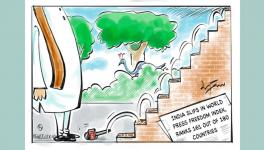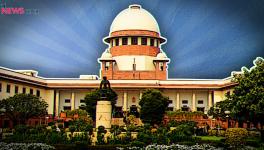Draft Registration of Press & Periodicals Bill, 2019 Denies Freedom of Anonymous Expression

On November 25, 2019, the Ministry of Information & Broadcasting had issued a notice soliciting comments from stakeholders on the Draft Registration of Press & Periodicals Bill, 2019. The bill seeks to replace the colonial-era Press & Registration of Books Act, 1867.
The Draft Bill not only retains the registration requirement for printing presses and periodicals but also expands its scope to include ‘news on digital media’.
The right to freedom of speech and expression implicates three realms that require protection for a meaningful enjoyment of the right: ‘the person’, ‘the medium or forum’, and ‘the content of the speech or expression itself’.
By denying the right to anonymity, the compulsory registration apparatus weakens the protections for ‘the person’ as well as ‘the medium or forum’. In doing so, it has a chilling effect on the right to freedom of speech and expression and is thus unconstitutional in its entirety.
What Is The Right To Anonymity Under Freedom Of Speech?
In KS Puttaswamy v. Union of India, the Supreme Court held that the right to privacy is an “intrinsic part of the freedoms guaranteed by Part III of the Constitution”. It is “in-built” and “logically presupposed” — a “condition precedent” which makes the other fundamental rights “meaningful”. The right to privacy informs the content and contours of freedom of speech including the freedom of the press.
At this intersection of privacy and freedom of speech lies the right to anonymity.
The default must be to maintain anonymity, with disclosure as a reasonable restriction.
The right to anonymity protects ‘the person’ exercising her freedom of speech and expression from interference, by enabling her to not identify herself as the source of such expression. This protection extends not just to the author, but also to the owner, the editor, the publisher, the director or the shareholder of ‘the medium or forum’, since their freedom of speech and expression is “projected and manifested” through the same.
The right to freedom of anonymous speech and expression is essential to prevent the chilling effect of self-censorship due to the fear of social or economic ostracization, criminal sanction, or state or non-state retaliation.
Thus, a pre-emptive restriction requiring “disclosure as a condition of entry”, ostensibly aimed at preventing potential instances of unlawful speech, cannot be the default. This is disproportionate, arbitrary, and unreasonable restriction. The default must be to maintain anonymity, with disclosure as a reasonable restriction.
The Requirement of Registration under the Draft Bill
Section 3 of the Draft Bill requires that local authorities must be intimated about printing presses “of any kind of publication”, and must receive an annual statement specifying the details of the periodicals printed.
Section 6 requires that a certificate of registration be obtained from the Press Registrar General to print or publish any periodical. Section 18 requires that publishers of ‘news on digital media’ register themselves with the Registrar of Newspapers of India.
The breadth of this registration apparatus created is vast.
A ‘publication’ is defined as anything printed on paper, including books. A ‘periodical’ is defined to cover magazines and newspapers including those which provide ‘comments on public news’, as well as journals.
The Draft Bill requires “disclosure as a condition of entry” and hence it demands a waiver of the right to anonymity as a condition of entry into the marketplace of ideas.
The phrase ‘news on digital media’ is defined to include text, audio, video and graphics. It uses a word of many definitions, ‘news’, and fails to define it, leaving it subject to arbitrary bureaucratic determination. It covers online mediums or forums, which have a vital role in facilitating anonymity as an integral part of realizing the freedom of speech and expression.
The Draft Bill neither reaffirms nor creates any rights; it bestows no privileges; it prescribes no obligations of an unbureaucratic nature.
The Draft Bill requires “disclosure as a condition of entry” and hence it demands a waiver of the right to anonymity as a condition of entry into the marketplace of ideas. While ostensibly aimed at curbing potentially unlawful speech, the underlying objective of the registration apparatus appears to be the facilitation of state surveillance, which has a resultant chilling effect on the freedom of speech and expression.
The Chilling Effect of Self-Censorship
A law or state action is likely to have a chilling effect on the freedom of speech and expression when they “while not directly censoring speech, nonetheless have the impact of self-censorship”.
This criticism is misconceived as the doctrine of chilling effects is applicable only to situations where the dictate of the law, though not restricting freedom directly, is likely to have the effect of self-censorship
In Shreya Singhal v. Union of India, the Supreme Court held that a law would be unconstitutional if “it takes within its sweep protected speech” and “is liable … to be used in such a way as to have a chilling effect on free speech”. In Puttaswamy, the Supreme Court observed that “pre-publication restraints … are vulnerable because they discourage people … because of the fear of a restraint coming into operation”.
The standard to be met, therefore, is whether the provisions in question are likely to result in self-censorship, without requiring strict proof.
However, in Anuradha Bhasin v. Union of India, while leaving the question of law open, the Supreme Court observed that “evidence should be brought before the court to enable it to give a clear finding”, failing which the claim of a chilling effect on the freedom of the press would be “purely speculative” and a “self-proclaiming instrument”.
This criticism is misconceived as the doctrine of chilling effects is applicable only to situations where the dictate of the law, though not restricting freedom directly, is likely to have the effect of self-censorship. A requirement of any higher standard of proof would render the doctrine nugatory.
The registration apparatus could facilitate surveillance, tracking, and targeting by allowing the government to easily identify and assess the content of such mediums or forums.
The Court failed to recognize the inevitability of behavioural assumptions in any chilling effect analysis.
Schauer correctly notes that “the lack of any ability to quantify or test these assumptions does not diminish the significance of the chilling effect as a substantive doctrine” since the doctrine is an expression of the normative preference to err on the side of the freedom of speech and expression. The standard must therefore be one of the likelihood of self-censorship.
The Draft Bill predicates the freedom of the press across mediums on their compliance with the registration apparatus. It imposes a threshold obligation on owners, editors, publishers, or managers of ‘the mediums or forums’ (periodicals, printing presses, news on digital media) who identify themselves to the government and waive their right to anonymity. This stifles dissent, and would likely chill the activities of those citizens whose views may be at variance with prevailing majoritarian social or political mores, for fear of retaliation.
The registration apparatus could facilitate surveillance, tracking, and targeting by allowing the government to easily identify and assess the content of such mediums or forums.
The government could influence its operations directly or indirectly. For instance, it can withdraw government advertisements, or restrict or block access of the public outright. It may even by using criminal sanctions or other coercive actions.
These scenarios are neither dystopian nor speculative, nor are they alarmist: they are the likely reality of our times.
The Social Media Communications Hub was abandoned due to surveillance concerns. However, despite that, the government has released several tenders to hire firms that provide an integrated social media feedback tool. The government continues to use the AASMA for social media monitoring without any legal framework.
The government varies its advertisement spending as a tool of reward or punishment.
Section 69A and Section 79 of the IT Act, 2000, and the rules framed thereunder, are commonly used to block access to websites, as well as specific content on social media. The charge of sedition under Section 124A, IPC, 1860 is also widely-used to curb dissent.
In this regime of pervasive monitoring and retaliation, the mandatory registration apparatus itself has the likelihood of having a significant “deterrent effect” or chilling effect on the freedom of speech and expression.
This may extend to chilling the creation of new mediums or forums which deviate from the ‘party-line’, as well as self-censorship with respect to the content on them. In a case that involved a registration requirement for labour organizers, the US Supreme Court aptly observed that “it is from petty tyrannies that large ones take root and grow”, especially “when they are imposed on the most basic rights of all”.
The Draft Bill, therefore, is unconstitutional in its entirety, since the registration apparatus denies the right to freedom of anonymous speech and expression which has the “unmistakable tendency to chill” the unfettered exercise of that right.
(Aditya Wakhlu is a student at the National Law School of India University, Bangalore.)
Originally Published in The Leaflet
Get the latest reports & analysis with people's perspective on Protests, movements & deep analytical videos, discussions of the current affairs in your Telegram app. Subscribe to NewsClick's Telegram channel & get Real-Time updates on stories, as they get published on our website.
























